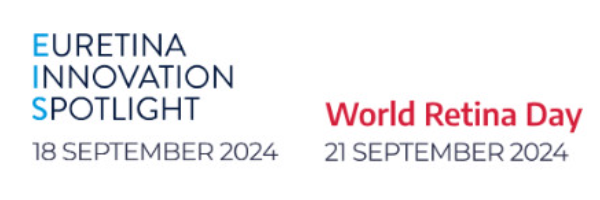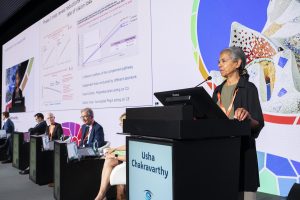Dr Roy Schwartz (Moorfields Eye Hospital, United Kingdom) presented a sneak peak at the results of research funded by the inaugural Retinal Medicine Clinical Research grant (originally awarded in 2020) during a free paper session at the Euretina Congress on Friday.
The presence of reticular pseudodrusen (RPD) in eyes with intermediate AMD is associated with a higher risk of progression to late AMD, but genetic determinants are unclear. Understanding genetic determinants could help unravel disease pathways and future treatment development.
Dr. Schwartz said that the aim of the study was to identify unique genetic determinants of RPD and compare them with drusen, using data from the UK Biobank (UKBB). This research represents the first genome-wide association study (GWAS) specifically targeting RPD (in fact, the group conducted 6 different GWASs), and it made several groundbreaking discoveries.
This was the first study to conduct a GWAS specifically for RPD. It utilised a validated deep learning framework to analyse 169,370 OCT volumes, identifying and validating cases of RPD and drusen through manual review by five retina specialists. The methodology allowed the group to utilise the load of RPD, which has proven to provide more power to the study than a case-control GWAS approach.
The group confirmed the hypothesis that RPD and drusen have distinct genetic pathways. While the ARMS2-HTRA1 locus showed a significant association with higher RPD load, the CFH locus, which is strongly associated with drusen, was less strongly associated with the load of RPD. This distinction underscores the unique genetic underpinnings of RPD compared to drusen.
In addition, the group uncovered three novel loci associated with RPD. The identification of these loci was made possible by quantifying RPD load as a continuous trait, thereby increasing the statistical power of the study.
An article (“Genetic Distinctions Between Reticular Pseudodrusen and Drusen: Insights from a Genome-Wide Association Study”) covering the above in more detail has been published on medRxiv, you can view it here.
More information on the Euretina grant programme can be found HERE.
























































































































